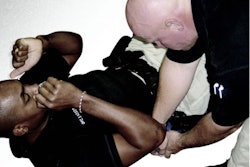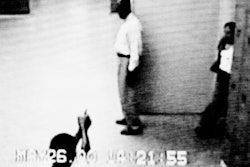Quiz time! What is the size of a two-dollar pad of paper but contains the entire value of your police career inside of it? Answer: Your city and department personnel files.
When you hear the saying, "The pen is mightier than the sword," think personnel files. No other collection of paper means more to city employees and your supervisors than this file folder. It's the first place these people look when you're up for a pay raise, promotion or special assignment. It's also the place they go for any information on you, such as your training history and evaluations.
With all of this importance wrapped up in a tiny little folder, shouldn't we take great care to ensure the most up-to-date and accurate information is displayed inside of it? We should, but the truth of the matter is most of us don't. Most cops haven't looked at their records in years, if ever. Some of these records are decades out of date, but they are still used by your department brass in deciding your future.
With this in mind, let's take a look at the most important parts of police personnel files, and how you can ensure yours are in order.
Achievements and Awards:
Police work is a thankless job much of the time. When you do earn an award or written praise for our efforts, it's important to make sure these find their way into your evaluations and personnel file. This isn't just for glory or for your supervisors to get warm fuzzies when they see your accomplishments. They can be vital when it comes down to who gets promoted and who doesn't. Remember, your immediate supervisors aren't the only ones who look at your files. City employees and decision-makers all the way up the promotional ladder take a peek at them, too. If you've earned the awards or written praise, make sure they get filed where they can do the most good, in your personnel file. Remember, if you don't ensure they get in there, no one will.
Training Certificates:
Police officers go through all sorts of training throughout their careers. Whether it's in-house meetings or specialized classes in other states, officers are being trained almost daily across the country. Your department may pay for the training, and even put you up in a hotel sometimes. However, this won't always ensure your training certificate lands in your personnel file. That job is up to you to complete. Even if you took a training class that is a prerequisite for your new assignment, it would still behoove you to look for it in your file. Remember, your co-workers may know you went to the class, but the city decision-makers don't unless it's in your file when they open it.
Reprimands or negative marks:
Most police officers will hit a bump in the road during the course of their careers. It may be a small setback, or cost you a few days off. Either way, you can be sure your department will remember to put that slip of paper in your personnel file. How long it stays there is the tricky part.
Most departments have policies in place on not only how to reprimand and document shortcomings, but also how long those files stay with you. Check with your department's association or union representative for these specifics. Many times, "unofficial" reprimands will only stay in your file for six months to a year. That is to say they are only supposed to stay in your file that long. Sometimes your department can "forget" to purge them from your file at the designated time, leaving them to be seen by all the next time you're up for promotion or special assignment. Check with your local representative today and mark any dates on your calendar, then ensure your department does what it is supposed to do and take those reprimands out.
Basic Information:
Does your file list the apartment you lived in 20 years ago when you got hired, or does it list your current address? Check all the basic information contained in your file. This includes address and phone number, but also includes your family information and any emergency contact information you may have listed. Check your hire date and any dates of promotion and/or special assignments. These can be important come pay raise or retirement time. The earlier you detect a problem, the easier it is to fix. Don't wait until you have one foot out the door to check this file. There are many horror stories from officers who did just that, and had to fight to fix everything a decade later. Make it easy on yourself and check your information early.
Checking you personnel file takes only a few minutes of your time, but it can save you weeks of heartache and hard work in trying to correct mistakes that are years old. Save yourself the trouble and check yours out this week. Ensure it's accurate and give yourself the best chance for those promotions and special assignments.














